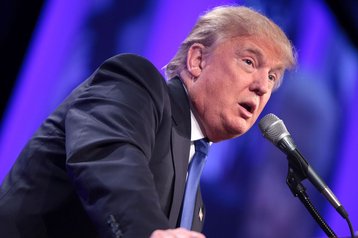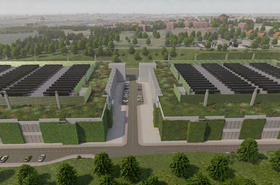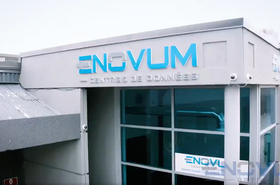US President Donald Trump has announced he is preparing to unveil 25 percent tariffs on all steel and aluminum imports.
"Any steel coming into the United States is going to have a 25 percent tariff," President Trump said.
The import tax will likely hit Canada the hardest. In 2023, net US aluminum imports were 44 percent of its total consumption, with Canada the biggest supplier, accounting for 56 percent of imports. Meanwhile, around 30 percent of steel imports into the US arrived from Canada.
In response to the news, Doug Ford, premier of Ontario, lambasted Trump for "shifting goalposts and constant chaos,” which he claims is “putting our economy at risk."
Several other countries reacted negatively to the news. For example, shares in South Korean steel and car makers fell significantly due to the announcement, with South Korea a major exporter to the US.
Australian Prime Minister Anthony Albanese told the Australian parliament that his government would "make the case" to the US for an exemption, which they were granted during President Trump's first term in office.
During his first term in office, Trump announced similar tariff packages, levying a 25 percent import tax on steel and 10 percent on aluminum from Canada, Mexico, and the European Union. However, a year after the announcement, the US reached a deal with Mexico and Canada. Tariffs on the EU continued until 2021.
The tax could have broad implications for the data center sector, where steel is a crucial material used across multiple applications within the construction process. In addition to playing a key role in constructing data center shells, it is also used in racking, server enclosures, cooling systems, piping, and power generation equipment.
US data center construction spending has spiked over recent years. According to data compiled by the US Census Bureau, investment in the sector reached $27 billion in 2024 and is expected to grow. As a result, steel demand is trending upwards, with the new tariffs potentially increasing costs for data center operators with new facilities in the works.
In addition to the new levies on steel and aluminum, the President also said that he was preparing reciprocal tariffs on all countries that tax imports from the US without specifying which nations or whether there would be any exemptions. According to President Trump, the tariffs are expected to be introduced on “Tuesday or Wednesday " and will match the tariff rates levied by each country.
As a self-described “tariff man,” President Trump has not hesitated to announce a series of import tariffs since returning to the White House.
Earlier this month, the US paused its planned 25 percent tariffs on Canada and Mexico for 30 days after the stock market responded negatively. The president also imposed 10 percent tariffs on all Chinese goods coming to the US, and Beijing retaliated with its own set of tariffs.
Late last month, Trump announced plans to impose "100 percent" tariffs on foreign-made computer chips, semiconductors, and pharmaceuticals, particularly those originating from Taiwan. In a speech to House Republicans, Trump claimed the tariffs would incentivize tech firms to manufacture chips in the US instead of Taiwan.







